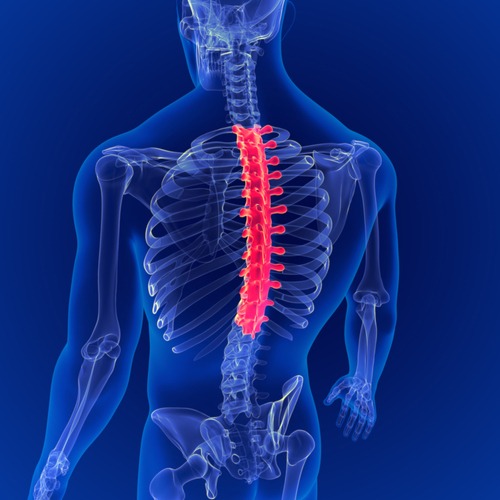Published on
Updated
Reading 2 mins.
According to the results of a study conducted in Brazil, students using their laptops for more than three hours a day are more at risk of back pain. Girls are also more affected than boys.
Between social networks, games and video platforms, teenagers are spending more and more time on their laptops. But often at the expense of poor posture, lying or sitting, which can lead to back problems at the top of the spine. We talk about the thoracic spine is located at the back of the chest, mainly between the shoulder blades and extends from the bottom of the neck to the beginning of the lumbar spine.
Focus on back pain
Thoracic spine pain or back pain is common in different age groups of the general population worldwide, with a prevalence ranging from 15% to 35% in adults and 13% to 35% in children and teens.

The explosive growth in the use of electronic devices during the COVID-19 pandemic has clearly compounded the problem. The risk factors associated with back pain are physical, physiological, psychological and behavioral, according to several surveys.
There is also strong evidence of the effects of physical activity, sedentary habits and mental disorders on spinal health.
A study that focuses on upper back pain
To analyze the links between back pain and cell phone use, Brazilian researchers submitted adolescents aged 14 to 18 to various questionnaires. The first was completed between March and June 2017 by 1,628 participants and 1,393 completed a second, for follow-up, in 2018.
Results: the analysis of the answers showed a prevalence over one year of 38.4% of young people suffering from back pain at the level of the thoracic spine, with an increase of 10.1%, of new cases, during the follow-up year. Another notable element: more girls than boys reported suffering from this type of pain.
Pain aggravated by the Covid-19 pandemic
According to scientists, back pain is widespread across the world, both among the youngest and the oldest. But the increase in the use of this type of device among adolescents as well as the Covid-19 pandemic have made matters worse.
“Study can be used to improve health education programs for students, teachers, staff and parents“says Dr. Alberto de Vitta, first author of the article.
Providing information to these young people about these risks is all the more essential since adolescents suffering from back pain are generally more inactive, do less well in school and have more psychosocial problems, believe the researchers.
